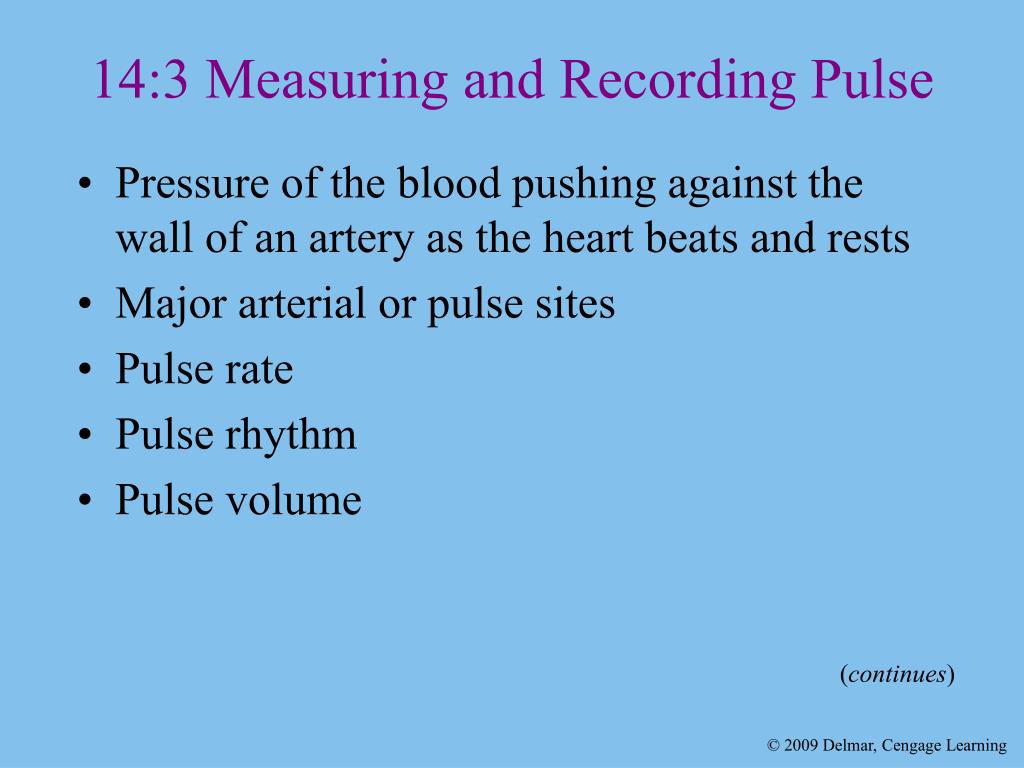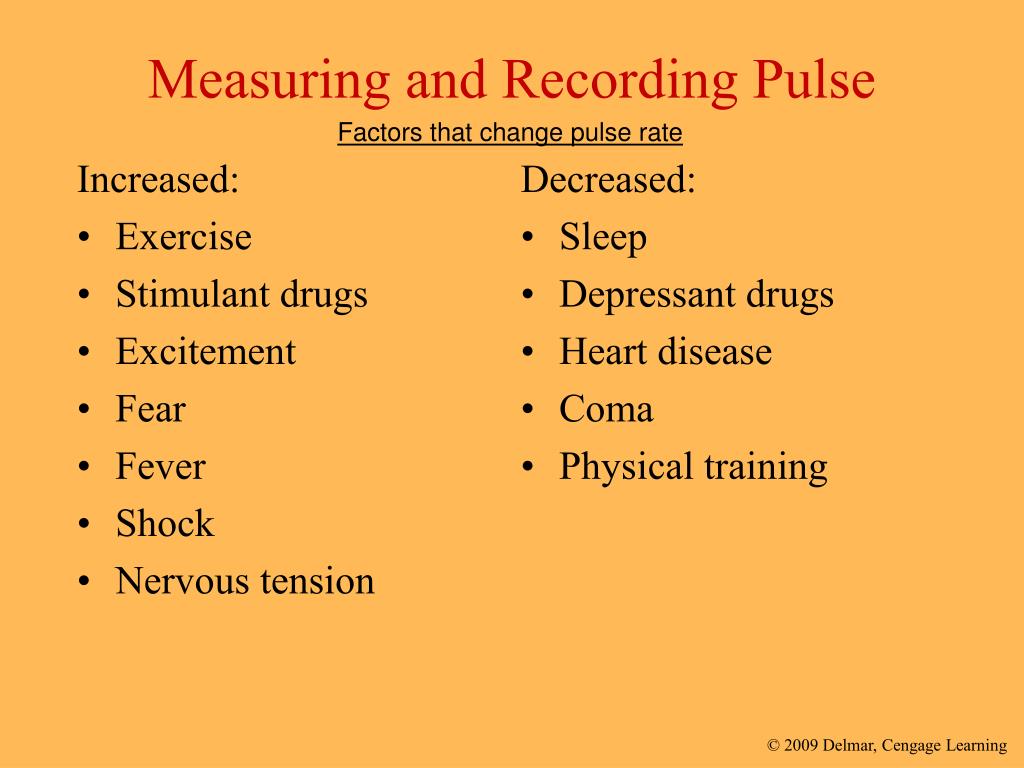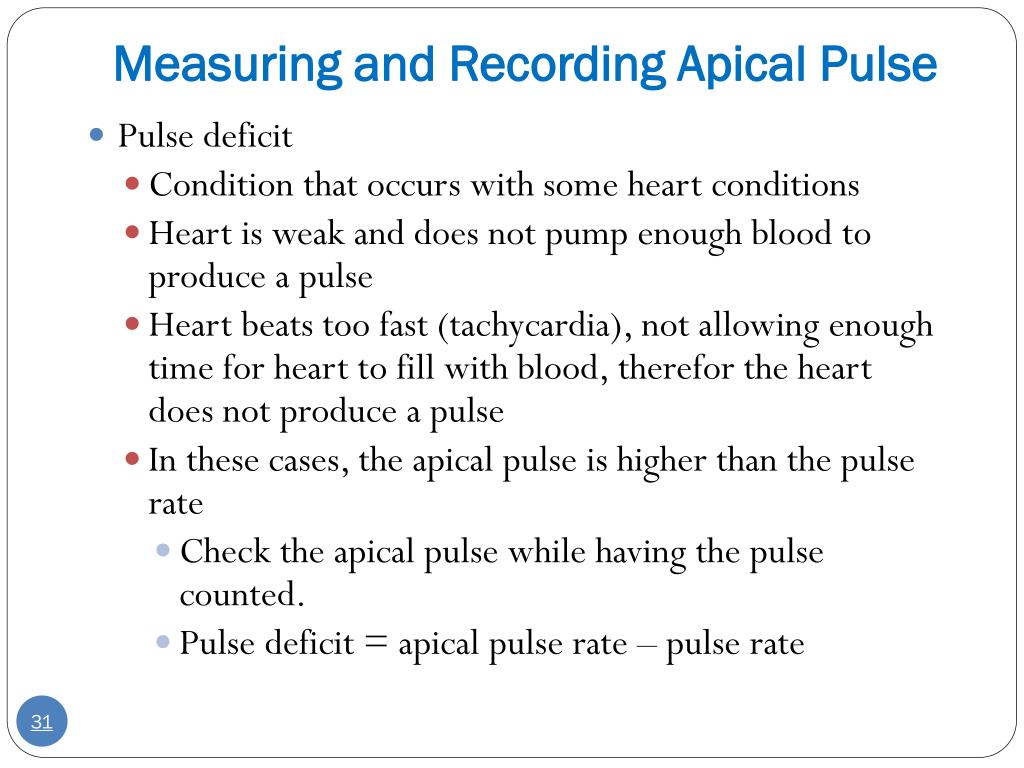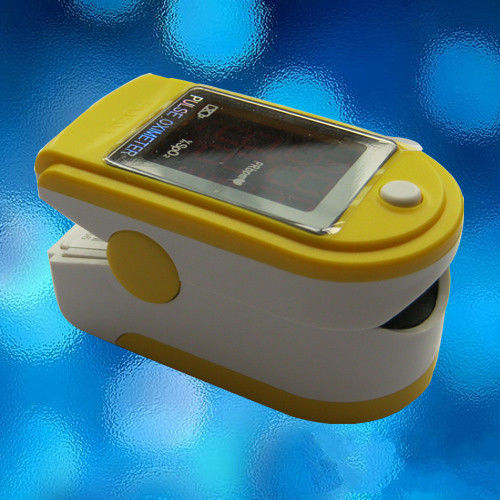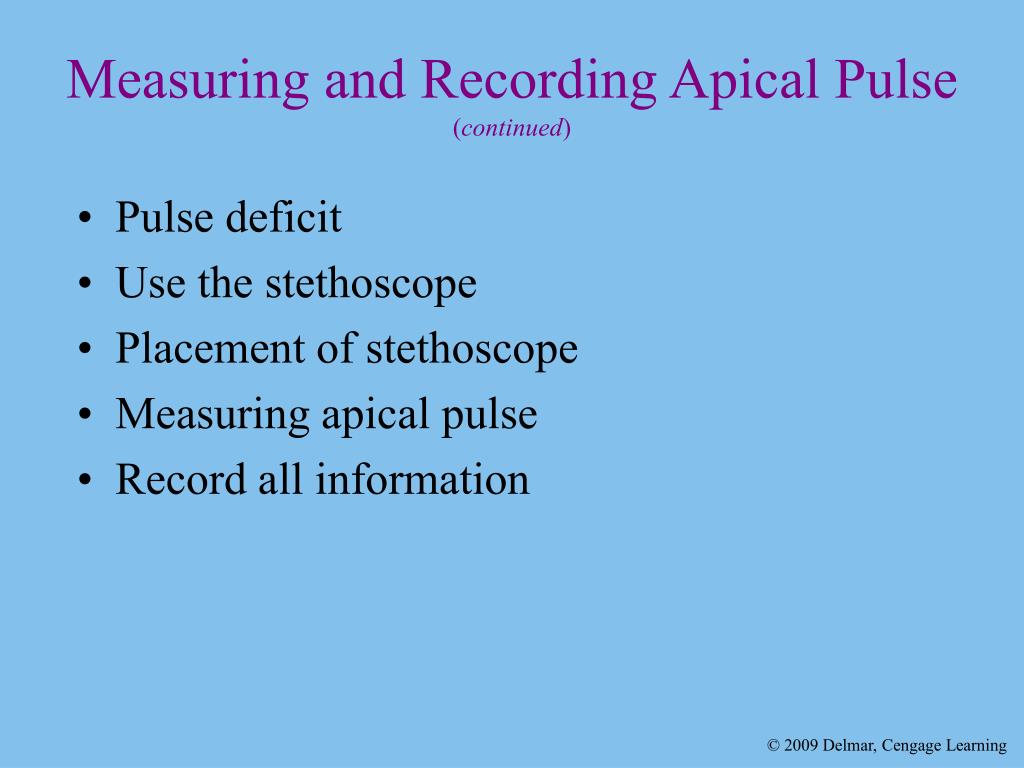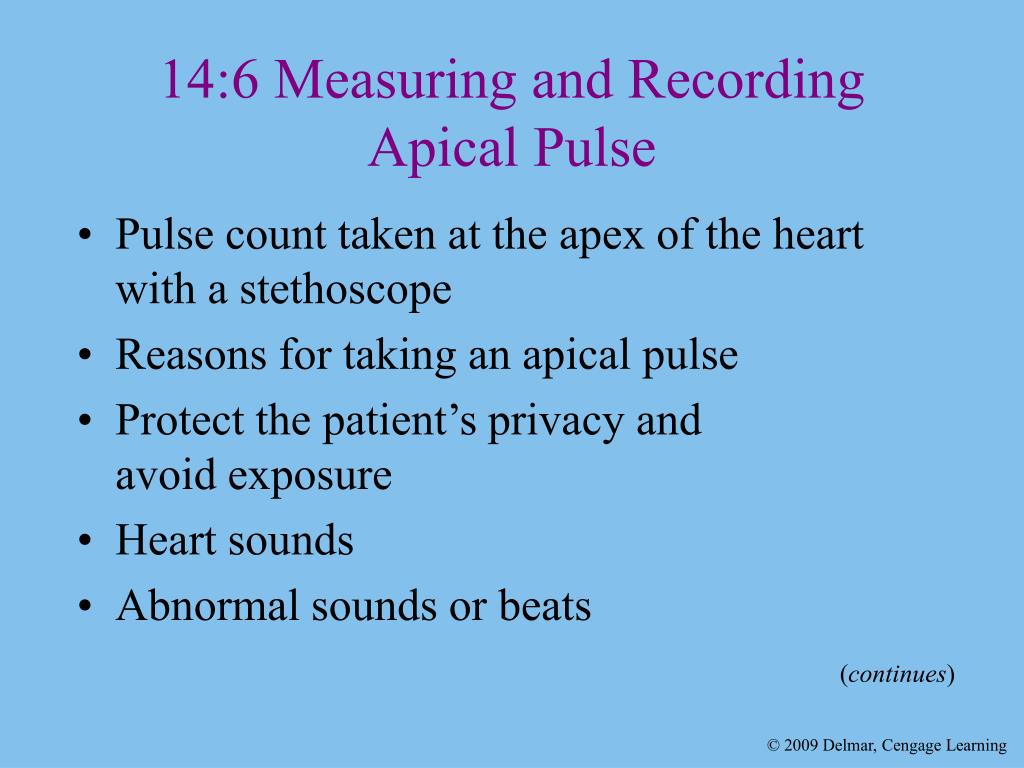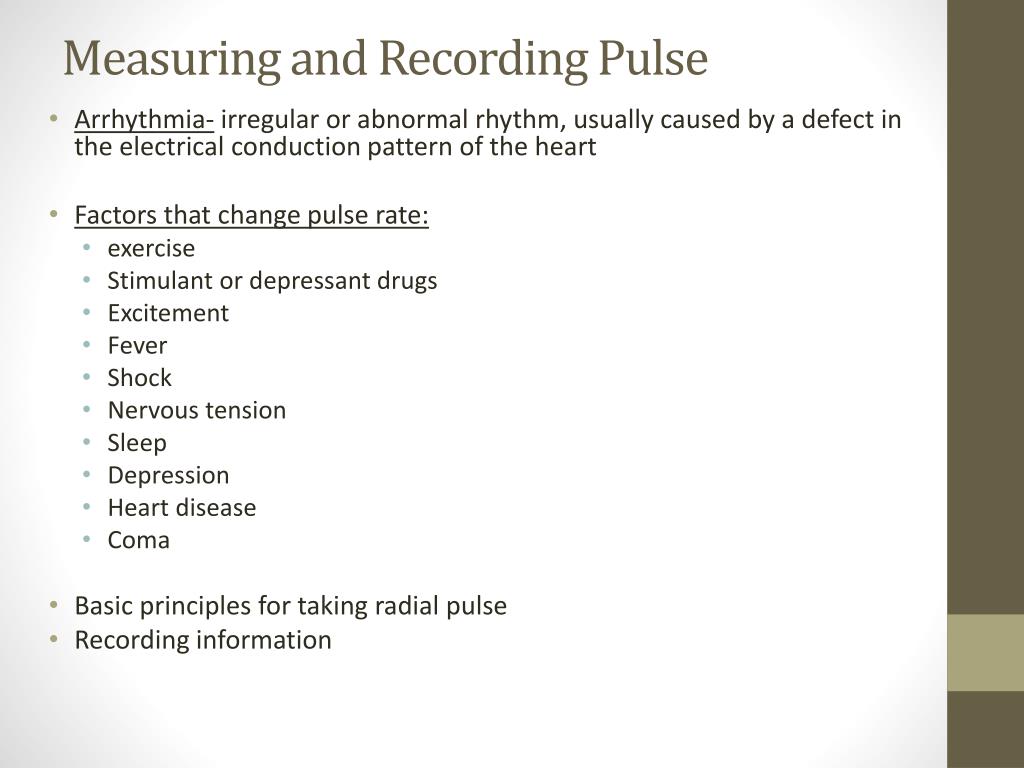Chapter 16:3 Measuring And Recording Pulse
Chapter 16:3 Measuring And Recording Pulse - Web chapter 16:1 measuring and recording vital signs 1. 3 measuring and recording pulse 1. Web study with quizlet and memorize flashcards containing terms like pulse count taken with a stethoscope at the apex of the heart, hardening of the arteries, weak/rapid heartbeat, closing of the heart valves and. Web which of the following events took place last? What is regarded as the fifth vital sign? Pressure occurs in the walls of the arteries when the left ventricle of the heart is. A the declaration of independence was issued. Web list the four main vital signs. View full document basic health mr. Knee where is the borsalis pedis pulse site?
Abnormal breathing pattern characterized by periods of dyspnea. Children over 7 years old 3. Why is it essential that vital signs are measured accurately? Measuring and recording radial pulse; Measuring and recording tympanic (aural) temperature; Web list the four main vital signs. What is regarded as the fifth vital sign? Wrist where is the femoral pulse site? Temperature, pulse, respirations, and blood pressure 2. Infants, list three factors that could cause an increase in a pulse.
Rhythm regularity of the pulse or respirations rate number of beats per minute. Ankle what are the three factors that must be noted about each and every pulse? Web study with quizlet and memorize flashcards containing terms like the three factors that must be noted about each and every pulse are:, what are normal pulse range for each of the following? Web list the four main vital signs. Web 16:3 measuring and recording pulse 1.: Children from 1 to 7 years old 4. Temperature, pulse, respirations, and blood pressure 2. Web study with quizlet and memorize flashcards containing terms like pulse count taken with a stethoscope at the apex of the heart, hardening of the arteries, weak/rapid heartbeat, closing of the heart valves and. Web absence of respirations usually temporarily. Web inside arm where is the radial pulse site?
PPT Chapter 14 PowerPoint Presentation ID315584
Tachypnea (fast) respirations over 25 beats per minute. 3 measuring and recording pulse 1. Children from 1 to 7 years old 4. Web study with quizlet and memorize flashcards containing terms like pulse count taken with a stethoscope at the apex of the heart, hardening of the arteries, weak/rapid heartbeat, closing of the heart valves and. Web absence of respirations.
How To Check Pulse Rate For Fever Rating Walls
Wrist where is the femoral pulse site? Children from 1 to 7 years old 4. Web study with quizlet and memorize flashcards containing terms like the three factors that must be noted about each and every pulse are:, what are normal pulse range for each of the following? Normal pulse range for chlidren over 7 years old. Pulse pressure of.
PPT DIAGNOSTIC SKILLS PowerPoint Presentation, free download ID3552275
Web 16:3 measuring and recording pulse 1.: The 3 factors recorded about a pulse. List the four (4) main vital signs. Tachypnea (fast) respirations over 25 beats per minute. How do you measure the patient's degree of pain?
PPT Chapter 15 PowerPoint Presentation, free download ID2184988
View full document basic health mr. Measuring and recording tympanic (aural) temperature; Web list the four main vital signs. Web 15.3 measuring and recording pulse. Web respiration measure of breathes by a patient.
PPT Chapter 14 PowerPoint Presentation ID315584
Web chapter 16:1 measuring and recording vital signs 1. Web beat of the heart as felt through the walls of the arteries. Web list the four main vital signs. Web chapter 16:3 measuring recording and pulse name: Infants, list three factors that could cause an increase in a pulse.
PPT Chapter 15 PowerPoint Presentation, free download ID2184988
Groin area where is the popliteal pulse site? Normal pulse range for chlidren over 7 years old. The force exerted by the blood against the arterial walls when the heart contracts or relaxes. The 3 factors recorded about a pulse. Why is it essential that vital signs are measured accurately?
Digit Fingertip Pulse Oximeter , Spo2 Recording Pulse Oximeter Machine
Web study with quizlet and memorize flashcards containing terms like what are the 7 sites where a pulse can be taken?, normal pulse range for adults?, normal pulse range for children over 7 years old? Tachypnea (fast) respirations over 25 beats per minute. How do you measure the patient's degree of pain? Web 15.3 measuring and recording pulse. Why is.
PPT Chapter 14 PowerPoint Presentation ID315584
Web beat of the heart as felt through the walls of the arteries. Web study with quizlet and memorize flashcards containing terms like define apical pulse, list two diseases or conditions a patient may have that would require that an apical pulse be taken, why are apical pulse usually. Web chapter 16:1 measuring and recording vital signs 1. Abnormal breathing.
PPT Chapter 14 PowerPoint Presentation, free download ID315584
The 3 factors recorded about a pulse. Infants, list three factors that could cause an increase in a pulse. Chapter 9 cultural diversity study guide. 3 measuring and recording pulse 1. Groin area where is the popliteal pulse site?
PPT Chapter 15 PowerPoint Presentation, free download ID4052123
Web study with quizlet and memorize flashcards containing terms like define apical pulse, list two diseases or conditions a patient may have that would require that an apical pulse be taken, why are apical pulse usually. Web created by zlyons16 measuring and recording pulse terms in this set (25) pulse refers to the pressure of the blood pushing against the.
Web Study With Quizlet And Memorize Flashcards Containing Terms Like The Three Factors That Must Be Noted About Each And Every Pulse Are:, What Are Normal Pulse Range For Each Of The Following?
3 measuring and recording pulse 1. How do you measure the patient's degree of pain? Bradypnea (slow) respiratory rate below 10 beats per minute. Web created by zlyons16 measuring and recording pulse terms in this set (25) pulse refers to the pressure of the blood pushing against the wall of an artery as the heart beats and rests bradycardia a pulse rate.
Groin Area Where Is The Popliteal Pulse Site?
Infants, list three factors that could cause an increase in a pulse. Web study with quizlet and memorize flashcards containing terms like define apical pulse, list two diseases or conditions a patient may have that would require that an apical pulse be taken, why are apical pulse usually. Web chapter 16:1 measuring and recording vital signs 1. Web absence of respirations usually temporarily.
Normal Pulse Range For Adults.
C the battles at lexington and. Children from 1 to 7 years old 4. Stethoscope instrument used to take apical pulse. A the declaration of independence was issued.
Children Over 7 Years Old 3.
The 3 factors recorded about a pulse. Web beat of the heart as felt through the walls of the arteries. Web study with quizlet and memorize flashcards containing terms like pulse count taken with a stethoscope at the apex of the heart, hardening of the arteries, weak/rapid heartbeat, closing of the heart valves and. The force exerted by the blood against the arterial walls when the heart contracts or relaxes.
